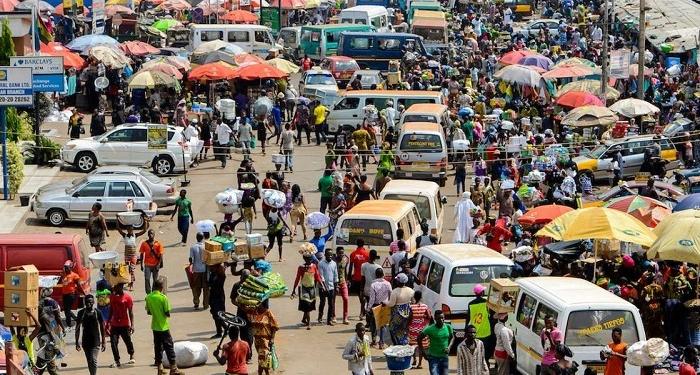Inflation Drops 160 basis points to 12.1% in July, Lowest Rate Since October 2021
Ghana’s year-on-year inflation rate slowed further to 12.1% in July 2025, down from the 13.7% recorded in June, according to new data released by the Ghana Statistical Service (GSS).
The latest decline marks the seventh consecutive drop in the inflation rate this year and the lowest inflation figure since October 2021—signalling continued easing of price pressures in the economy.
Government Statistician, Dr Alhassan Iddrisu, attributed the sustained decline to significant moderation in food prices and a general deceleration in the prices of goods and services across the country.
“The pressures that have been driving inflation over the past months are gradually easing,” he stated during the monthly Consumer Price Index (CPI) briefing.
On a month-on-month basis, the general price level rose by 0.7% between June and July 2025.
Food Inflation fell by 1.2 percentage points to 15.1% year-on-year, with food prices rising marginally by 0.6% over the one-month period. Non-Food Inflation dropped to 9.5% from 11.4% in June, while non-food prices increased by 0.7% month-on-month.
Goods Inflation stood at 14.2%, a 1.0 percentage point decline from the previous month. Prices of goods rose by 0.5% between June and July. Services Inflation recorded a sharp decline of 3.1 percentage points to 6.2%. Despite the slowdown, services prices rose by 1.3% month-on-month.
Inflation for locally produced items remained higher at 12.9%, compared to 10.0% for imported items. Month-on-month, local items saw a price increase of 0.9%, while imported goods increased marginally by 0.1%.
Regional Overview
The Upper West Region once again registered the highest regional inflation at 24.8%, although this represented a notable drop from the 32.3% recorded in June. Despite the decline, the figure remains more than double the national average.
Conversely, the Central Region recorded the lowest inflation at 7.7%, making it the most stable region in terms of price movement for the period under review.
The consistent decline in inflation is expected to factor heavily into the Bank of Ghana’s next monetary policy decision, as the central bank seeks to balance price stability with ongoing efforts to support economic growth.








